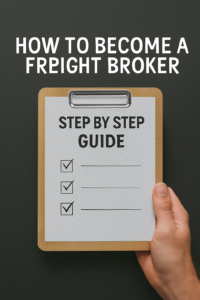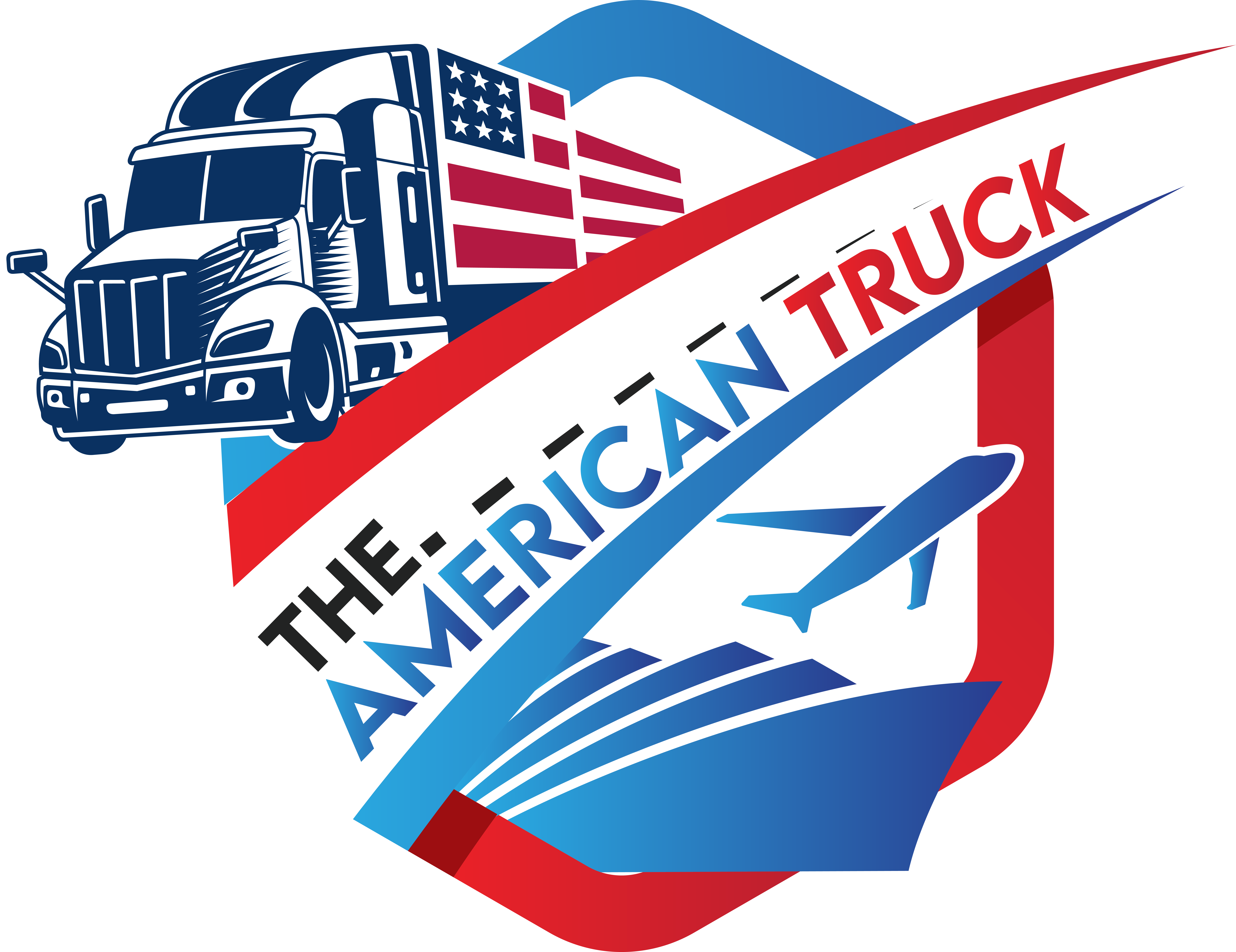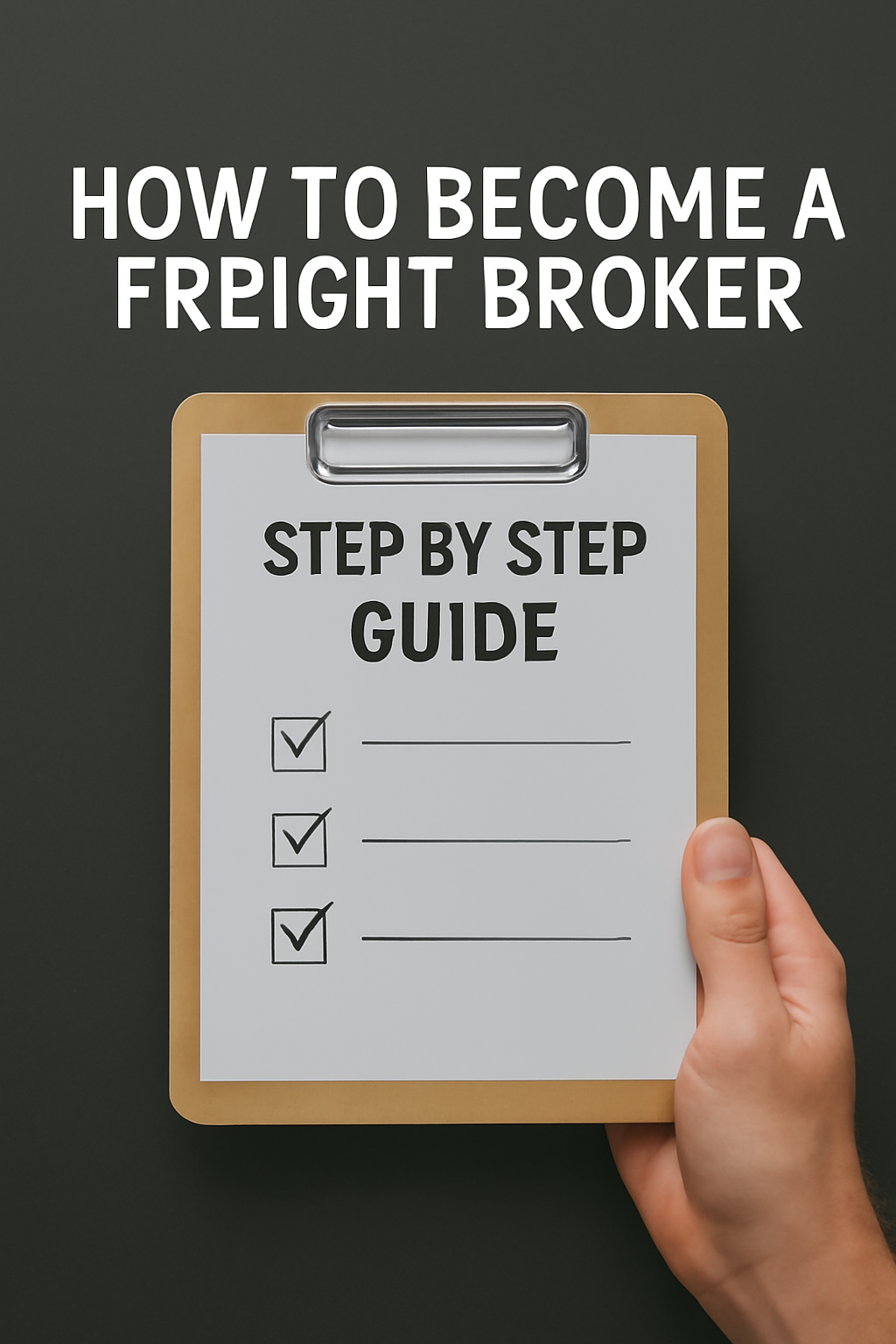
The freight industry is booming, and if you’re looking to jump into a career that offers both flexibility and profitability, becoming a freight broker might be your golden ticket. But here’s the catch: it’s not as easy as picking up a phone and making deals. Starting a freight brokerage business requires a clear understanding of the logistics, legalities, and strategies that make the industry tick.
In this guide, we’ll break down the exact steps you need to take to launch a successful freight brokerage. Whether you’re just dipping your toes into the world of freight or are ready to go full throttle, we’ll cover everything you need to know—from securing a freight broker bond to finding the right training and partnerships. And don’t worry—we’ll throw in a few insider tips to keep things moving smoothly.
At The American Truck Inc., we specialize in simplifying the logistics puzzle with a range of services designed to tackle your supply chain challenges. From real-time tracking to reliable carriers, we’ve been in the business of freight for years, and we’re here to help.
Understand What a Freight Broker Does
Before you dive headfirst into the world of freight brokerage, it’s important to know what this job entails. Simply put, freight brokers act as the middlemen between shippers (businesses that need to move goods) and carriers (trucking companies that deliver the goods). Think of it as being the ultimate matchmaker, but instead of finding love, you’re connecting businesses with the best carriers to move their products efficiently and cost-effectively.
The job can be pretty rewarding, but it also comes with its challenges. As a freight broker, you’ll need to have a keen understanding of the logistics world, excellent communication skills, and an ability to handle stress—because, let’s face it, things can get hectic when shipments don’t arrive on time.
Once you’ve wrapped your head around the basics, the next step is to ensure that you’re legally prepared for the journey ahead.
Get the Proper Licensing and Freight Broker Bond
Before you start booking shipments and making deals, you’ll need to become a legally licensed freight broker. In the U.S., the Federal Motor Carrier Safety Administration (FMCSA) is the governing body that oversees freight brokers. You’ll need to apply for a freight broker license, also known as an Operating Authority (MC Number), which grants you the legal right to operate as a freight broker.
But that’s not all. The FMCSA also requires freight brokers to secure a freight broker bond—this bond acts as a financial safety net for your clients. In case something goes wrong (such as a carrier failing to deliver), this bond ensures that your clients are compensated. The bond amount can vary, but it typically ranges between $75,000 and $100,000. While this might seem like a steep price to pay, it’s essential for building trust and credibility in your new business.
At The American Truck Inc., we understand the importance of reliability in the freight industry. That’s why we offer top-tier freight solutions designed to help shippers and carriers alike navigate the complex world of logistics with ease.
Complete Freight Broker Training
While it’s not mandatory, completing freight broker training can significantly improve your chances of success. Think of it as a fast track to mastering the ins and outs of the industry. The right training program will teach you how to find clients, negotiate rates, and manage shipments like a pro.
There are plenty of courses out there—both online and in-person—that cater to aspiring freight brokers. Some cover the basics, while others dive deep into the technicalities, including regulations, compliance, and building a business from the ground up. A good training program will also teach you the ins and outs of logistics software and freight management tools—critical skills that will set you apart from the competition.
Remember, this is an investment in your business’s future. While you can certainly start a freight brokerage without formal training, skipping this step could result in costly mistakes down the road.
Build Your Network and Secure Clients
Now that you’re officially licensed and trained, it’s time to get down to business—building your network and securing clients. After all, the key to success in the freight brokerage world is relationships. Whether it’s shippers looking to move goods or carriers looking for loads, the more connections you have, the more deals you can make.
Start by reaching out to potential clients, including manufacturers, wholesalers, and retailers. Offer them competitive rates, real-time tracking, and reliable service. Build your reputation as a dependable freight broker, and soon, the business will come knocking.
At The American Truck Inc., we understand the importance of fostering strong relationships. That’s why we provide shippers with dedicated support and a network of trusted carriers who know how to get the job done. If you’re looking to take the load off your shoulders, we’ve got you covered.
Set Up Your Business Structure and Operations
Setting up your freight broker business isn’t just about making calls and booking shipments. You’ll need to establish a solid business structure that includes setting up an LLC or corporation, obtaining insurance, and creating an operational plan. Having the right legal and financial structure in place will protect you in case things go awry and ensure you’re running a legitimate business.
As your business grows, you’ll also want to invest in logistics software to help streamline operations, track shipments, and keep tabs on finances. Efficiency is key when managing multiple shipments and clients, so automation and organization are your best friends.
Stay Compliant with Regulations
Compliance is a critical aspect of running a freight brokerage. The freight industry is heavily regulated, and failure to comply with federal, state, and local laws could lead to costly fines or even the loss of your license.
To stay compliant, ensure that you’re up-to-date with FMCSA regulations, including maintaining accurate records, following insurance requirements, and keeping your bond active. Additionally, familiarize yourself with any local or state-specific regulations that may affect your operations.
Regularly attending industry webinars, conferences, and workshops will also help you stay informed about changes in regulations. The more you know, the better equipped you’ll be to navigate the challenges of the freight industry.
Wrapping It Up
Becoming a freight broker isn’t a get-rich-quick scheme. It takes hard work, dedication, and a keen understanding of the logistics world. But with the right training, licensing, and strategies in place, you can build a thriving freight brokerage business that not only makes money but helps move the world’s goods more efficiently.
If you’re ready to take the next step, remember that The American Truck Inc. is here to support you. From finding reliable carriers to offering real-time tracking and top-notch freight solutions, we’re the partner you need in the logistics world.

